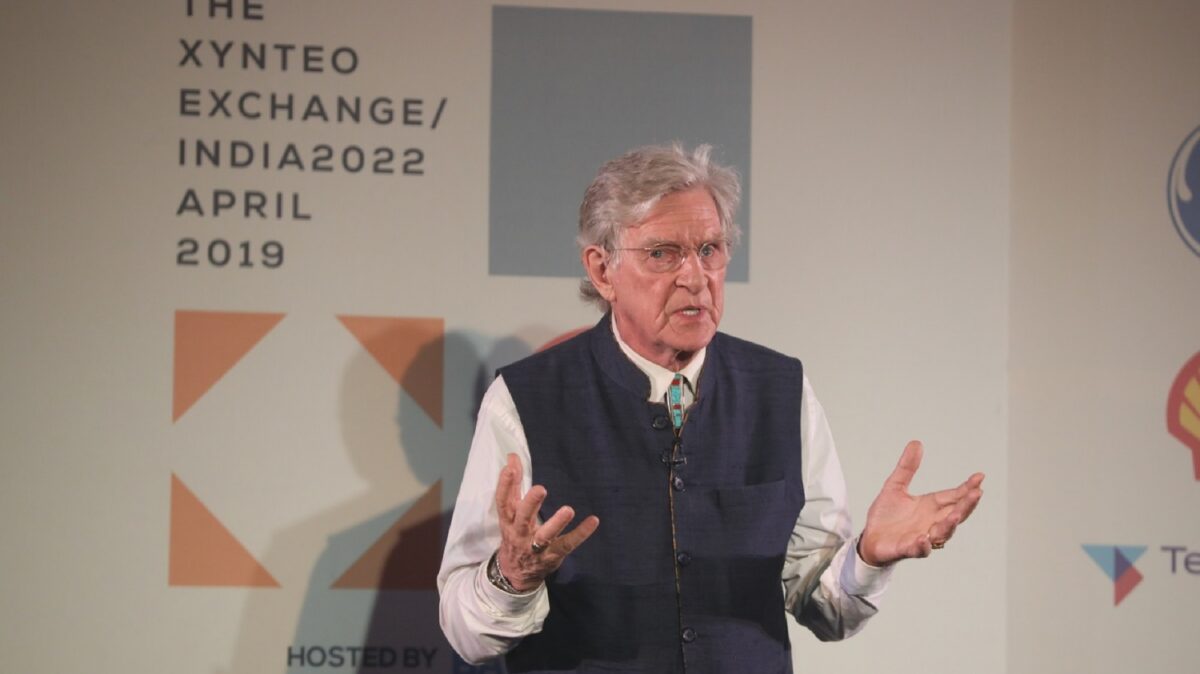Business leaders seeking to connect profit to purpose are all the rage, and also attract some criticism for not being authentic enough.
How can purposeful business be done in a manner that is both genuine and connects to the very best human values?
Robert Thurman, Professor of Indo-Tibetan Buddhist Studies, Columbia University explored this question with teachings of the Dalai Lama with a call to action towards a ‘compassionate revolution’. “The platform of being a human being is an extraordinary one. The purpose of your life is learning and expanding your being. The Xynteo Revolution should and will take this on!” he said.
An evolving model of corporate leadership
This thread was carried on by a range of leaders from the corporate world who spoke about the role of companies driving and shaping attitudes around social responsibility and addressing systemic challenges.
On the question of profit versus social responsibility, Harry Brekelmans, Projects & Technology Director, Royal Dutch Shell, emphasised that having a purpose that resonates with your consumers is what matters the most. “Corporations can not be successful without fulfilling a number of societal needs,” he said. “We are much more accountable towards having a purpose today than in the past – you have to live out those values you set out to do every day,” added Thierry Pilenko, Executive Chairman, TechnipFMC. He said that corporations have stepped up to the challenge and with India2022, a coalition of business leaders and thinkers, an example of a platform taking the right approach is set.”
As policy lags behind global challenges, companies are in a critical position to take the lead on filling the void. Norway and India have a shared view of the role of business in working towards positive social benefit – in developing a relationship between business and government. We heard from Thorhild Widvey, Chair of the Board, Statkraft, and former Minister of Culture, Norway on what can be learned from her home country, she responded, “We have a good experience of government and business working together without risking reputation.
The base of companies should have the focus of a social contract and equality.” Nasser Munjee, Chairman, Aga Khan Foundation and Aga Khan Rural Support Programme mentioned the Tata Group as the “perfect example of balancing the narrow path of social responsibility and profit for shareholders.” The group set aside the majority of their profits into trusts, thinking of CSR way ahead of current times. This was echoed by the State Bank of India’s chairman Rajnish Kumar, who gave insight into SBI’s success at profiting with a social purpose. “SBI was setup in 1955 for social and rural banking. This was instilled in our character even when we were listed in 1992. Then we started having to worry about what was in our pockets, but still retaining our sense of responsibility to our clients.”
“Profit can be married to social responsibility, they should not be an expense of the other, as shown by the examples we have here today,” concluded Latha Venkatesh, Executive Editor, CNBC-TV18 who moderated the session.
–
Stay up to date with our latest interviews by following us on social media (LinkedIn I Twitter), or Contact Us to find out how we can help your leaders and organisation create people and planet-positive impact.



